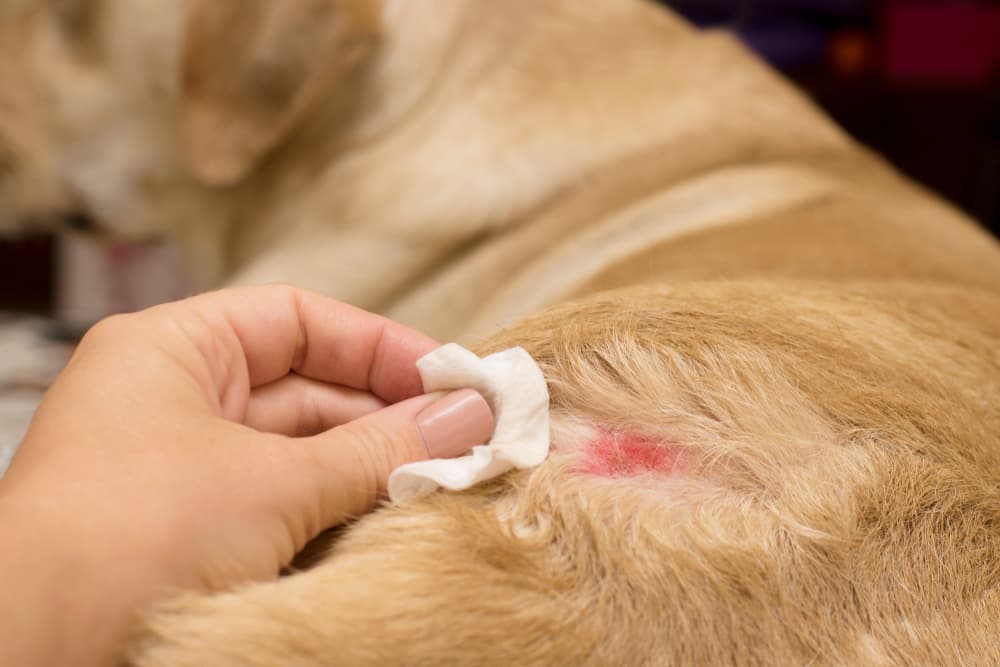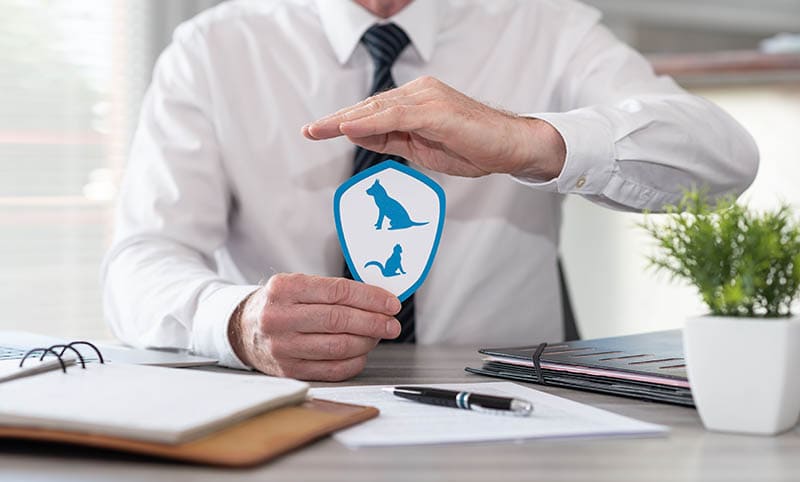
Veterinarians are required to have a wide range of skills. These skills can help them to make the most of their job, and will allow them to deliver better care for their patients. Some skills are specific for veterinary work while others are generic and applicable to all fields.
Working well with people, which includes interacting with clients and staff throughout a vet's career, is a vital skill. Communication with patients' owners, veterinary nurses, and other professionals is part of this.
Good communication skills make it easier for you to communicate with different people. They will also help to develop trusting relationships between yourself and your patients. This will also help you connect better with your patients, allowing you to give them a more friendly treatment and make them feel at ease.

This can be done by developing a strong understanding of the species you work with. This will give you a deeper understanding of how each animal reacts to treatment, which will be useful when you are assessing their progress and treating them.
The ability to pay attention is also a vital skill that a veterinarian must possess. It will help ensure they are always able to give the best possible treatment to their patients. When you're busy, it can be easy to forget about the details. But failing to do so could have negative consequences for your patient.
It is important for veterinarians to be able think critically about their options and choose the best one. The ability to think clearly is especially important when dealing with a sick patient.
Solving problems is an important skill for vets. They need to know what is wrong and how they can treat it. It may take several attempts to find a solution that works.

This can be a time-consuming process, so it's important for veterinarians to be able to think quickly and efficiently when making treatment decisions. It's important that they can communicate their treatment decisions clearly to their patients so that they understand the situation and what treatments are going to help.
Business knowledge is a crucial skill for vets, who need to be in a position to manage their financial resources and staff. It could include managing customers, overseeing the staff and marketing to potential clients.
Veterinarians need to have good manual dexterity, because they must be able to manipulate their fingers and hands when performing surgery or treating injury. It's possible that they will be asked to handle a patient, who may be aggressive or nervous. They must therefore keep their hands free from injuries.
FAQ
How often should I groom my dog?
Grooming your pet dog is very important. Grooming your dog helps to maintain his coat, and it keeps him clean.
Dogs should be brushed twice per week. Brush your dog after every meal.
Brushing your dog’s fur will get rid dirt and hair. Brushing your dog's teeth will make him look more healthy.
Brushing his ears regularly will prevent ear infections.
Which is easier to train: cats or dogs?
The answer is both. It all depends on how you train them.
Children learn faster when you reward them for their good behavior. But if you ignore them when they don't listen, they'll start ignoring you too.
There is no right or wrong way to teach your cat or dog. You have to decide what the best way is to teach your cat/dog.
How much should I pay for a pet?
Budget between $200-$300 per calendar month.
However, this varies depending on where you live. In New York City, for example, you would probably spend around $350 per month.
In rural areas, however, you might only need to spend $100 per month.
It's important to remember that you should buy quality items such as a collar, leash, toys, etc.
A crate is a great investment for your pet. It will protect your pet during transport.
How can I tell if my dog has fleas
Fleas can be detected if your pet is scratching its fur, licking too much, or appearing dull and untidy.
Flea infestations may also be indicated if your pet is experiencing redness.
You should take your pet to a vet as soon as possible for treatment.
What should I do?
Your personality will determine the answer to this question. Some people prefer kittens to puppies.
However, dogs are more playful and active than their human counterparts. Kittens usually sleep a lot and are very gentle.
Both types of animals require lots of attention from their owners. They will be able to grow quickly and require lots of care.
They will also need regular medical checkups. It is important that you take the time to take your pet to the vet.
How To Make Your Pet Happy?
Pet owners often wonder about how to make their pets happy. People buy treats and clothes for pets. But this might not always work because some pets don't like certain things. Some dogs can't stand sweaters.
You should ask your pet why they don't like the food you are buying. You may find out that your pet enjoys different foods than you. You might find that he dislikes shoes.
You can also play games with your pet. You can either use a ball or a Frisbee. Throw it around the room. You can also throw it into the air and let him chase it. This game makes both of you laugh. It's both relaxing and enjoyable.
You can also give your pet a bath every other week. Bathing helps remove dead skin cells from his coat. It also keeps his hair and skin smelling good.
It is also vital that your pet stays healthy. Don't let him eat junk food. Do not allow him to eat junk food. Instead, give him high-quality food. Get him plenty of exercise. So, take him outside for a walk or play fetch.
Your pet will enjoy spending time with you. Many pets will prefer to spend time with their owners, rather than being left alone.
Last but not least, be sure to unconditionally love your pet. Never yell at, hit or scold your pet. Be patient with the boy. Don't leave him unattended.
Statistics
- Here's a sobering reality: when you add up vaccinations, health exams, heartworm medications, litter, collars and leashes, food, and grooming, you can expect a bill of at least $1,000 a year, according to SSPCA. (bustle.com)
- A 5% affiliation discount may apply to individuals who belong to select military, law enforcement, and service animal training organizations that have a relationship with Nationwide. (usnews.com)
- In fact, according to ASPCA, first-year expenses can sum up to nearly $2,000. (petplay.com)
- For example, if your policy has a 90% reimbursement rate and you've already met your deductible, your insurer would pay you 90% of the amount you paid the vet, as long as you're still below the coverage limits of your policy. (usnews.com)
- Reimbursement rates vary by insurer, but common rates range from 60% to 100% of your veterinary bill. (usnews.com)
External Links
How To
How to train a pet cat
You need to first learn about the type of cat you want to train. Cats have very complex brains. They are intelligent animals, and they are also highly emotional creatures. To ensure your cat behaves well, you need to consider his/her personality. You have to learn how to take care of your cat.
Remember that cats are independent beings. This means that cats do not like to hear "no." You may be angry if they tell you "no". If your cat does something wrong, don't force them to do it. While your cat is dependent on you for affection and love, this does not mean that you can ignore him/her.
If you suspect that your cat may have some issues, then it is best to work together to fix them. Talk calmly to your cat. Avoid yelling at him/her. Don't make your cat feel bad by yelling at him/her. Also, your cat can't be forced to eat. Sometimes, he/she will refuse to eat. It is a good idea to treat your pet when this happens. But don't give too many treats because this could lead to overeating.
Keep your cat clean. It is important to clean your cat daily. Use a moist cloth to remove dirt and dust. Verify that your cat does not have fleas. Flea bites can cause irritation to the skin and allergies. Flea bites can be painful and should be treated with a shampoo.
Cats love to be social. They enjoy spending time with people. It is important that you spend quality time with your pet cat. Play with your cat and feed, bathe, and cuddle it. These activities will make your cat happy.
Training your cat should be done early. You should start training your kitten as early as possible. Your kitten should be around three months old to start training him/her. Your cat will be fully grown at this age and ready to learn new skills.
If you are teaching your cat tricks, it is important to explain each step clearly. When teaching your cat how to sit, for example, show it the chair first. Then, you should say "sit" and reward him/her with a treat. Keep repeating these steps until your cat gets it.
Remember, cats are intelligent. Cats can quickly figure out how they should perform tasks. They require patience and persistence. Don't expect your cat to instantly master a task. Allow your cat to practice for a while before you give up.
Keep in mind that cats come from the wild. They are naturally curious and playful. If your cat runs free, it's possible for him/her to accidentally knock objects over. It is important to keep your cat safe and away from other animals.